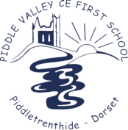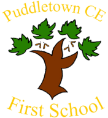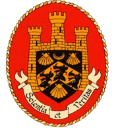
RE
Intent
● By the time pupils leave Puddletown First School, we want our children to be resilient, independent, aspirational, accepting, mindful and inquisitive learners. We see the teaching of RE as vital for children to understand others’ beliefs and make connections between their own values.
● Our RE curriculum combines high-quality teachings of Christianity along with a broad range of other key religions that are reflective of our school and local community. It uses an enquiry approach to help children engage with the knowledge through a cycle of: engage, enquire, explore, evaluate and express. This curriculum allows children to promote their personal, spiritual, moral, social and cultural development.
●We provide learners with knowledge and understanding of Christianity, Islam, Hinduism, Sikhism, Judasiam and atheists, as well as other principal religious traditions and beliefs influence people in their behaviour, practices and outlook.
● Learners will become aware of their own beliefs and values and have a positive attitude to search for meaning and purpose in life. They will be encouraged to develop a positive attitude towards other people with religious beliefs different from theirs.
●We want our children to be ‘Light’s for the world’ and to share their knowledge through all curriculum subjects, including RE.
Implementation
● Across the school, pupils are increasingly exposed to many opportunities to engage with and deepen their understanding and respect of different religions, beliefs, values and traditions through exploring issues within and between faiths.
● RE lessons are planned using ‘Understanding Christianity’ units and the ‘Emmanuel Project’. These units give clear progressive outcomes for the children to develop their depth of knowledge within RE as well as a breadth of different religions being studied. It allows teachers to have a deeper understanding of the subject knowledge needed in order to deliver high-quality RE lessons
● Lessons are planned and delivered to ensure that all pupils can access and participate in lessons. Interactive, practical activities are encouraged so that the children are able to discuss their ideas and extend their understanding of complex concepts and challenging questions. Children are encouraged to discuss their ideas to support their development of key vocabulary.
● The use of learning questions is encouraged to help children guide their learning back to a key area of learning each lesson. The children’s learning builds up to a big question that they respond to at the end of each unit.
● Assessment is based on the two attainment targets, which have been broken down into six strands. Staff will use unit-specific statements to assess children’s learning of and learning from the religion at the end of each unit. Clear end of KS assessment statements are used to give an indication of expected outcomes.
Impact
● Pupils will feel that they are valued as individuals and that their beliefs are valued and celebrated.
● Pupils will have a greater awareness of the world around them and will be mindful of the beliefs of others, preparing them for life as citizens in a diverse society.
● Pupils will have a knowledge and understanding of, and an ability to respond to, Christianity, other principal world religions, other religious traditions and world views.
● Enjoyment of the RE curriculum will promote creativity, achievement, confidence and inquisitive minds.
● Pupils will feel safe to learn new things and share their beliefs with others in an accepting environment and will have the skills of reflection, expression, application, analysis and evaluation of beliefs, values and practices.
● Pupils will leave the school with a sense of belonging in a community where they have the confidence and skills to make decisions, self-evaluate, make connections and become lifelong learners.













